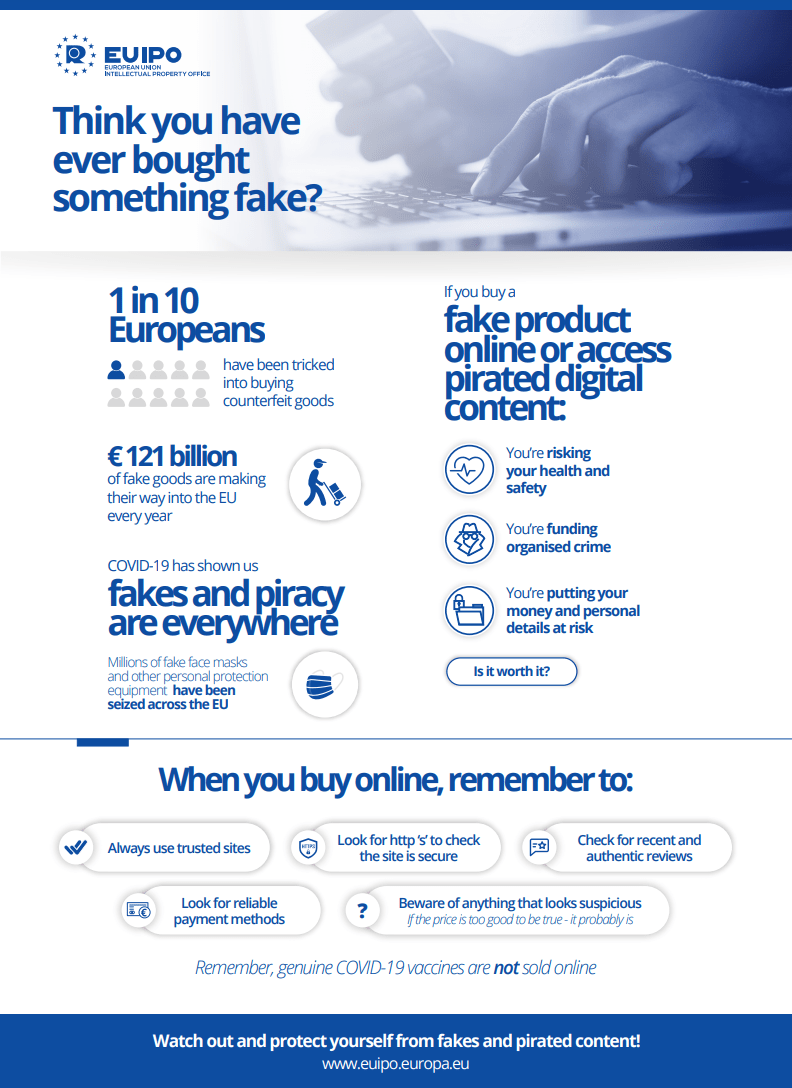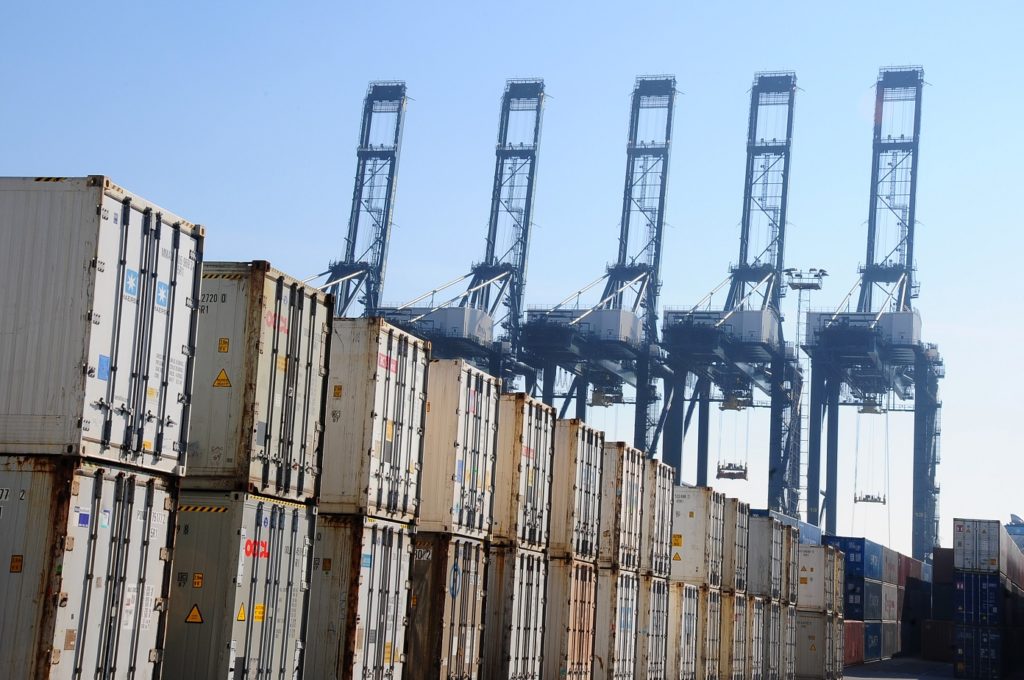The coronavirus pandemic has exacerbated the extent of counterfeiting and piracy in the EU that’s come with the rise of e-commerce, according to a study released Tuesday by the European Union Intellectual Property Office (EUIPO).
The study found that 8% of Belgians have been misled into buying a counterfeit product, and nearly 1 in 10 Europeans reported being tricked into buying what turned out to be a fake.
One particular area of concern when it comes to piracy, in particular during the pandemic, is intellectual property.
“Intellectual property is one of Europe’s most valuable assets, and a key element in our social and economic recovery, especially for small businesses,” said the Executive Director of the EUIPO, Christian Archambeau.
“The COVID-19 pandemic has put the problem of IP crime under a magnifying lens with the rise of counterfeit medicines and medical products that further threaten the health and safety of citizens. This is a long-standing issue, often interlinked with other types of illegal activities, which requires urgent robust, coordinated action and has recently been reinstated as one of the top ten EU priorities in the fight against organised crime.”
The year 2020 was marked by the proliferation of counterfeit medicines, such as antibiotics and painkillers, and, more recently, other medical products like personal protective equipment and surgical masks.
Europe faced its own issue with toxic face masks during the pandemic as recently as this April, with top EU officials spotted wearing made-in-China masks said to contain harmful particles. Belgium, too, had its run-ins with similarly faulty masks.
In addition to health and safety risks, counterfeits often lead to other negative consequences, such as security breaches and financial losses.
The trade in counterfeit or pirated pharmaceuticals is worth €4 billion worldwide, according to EUIPO’s study.
The countries with the highest proportion of duped consumers are Bulgaria (19%), Romania (16%) and Hungary (15%).
Sweden (2%) and Denmark (3%) are at the bottom of this ranking.
With its rate of 8%, Belgium is slightly below the European average.
A study published earlier this year that looked at counterfeiting in shipping containers ranked Belgium as one of the top ten ports of entry for fake goods in the European Union.

Infographic from EUIPO
To raise awareness of the value of intellectual property rights, EUIPO, in cooperation with the European Commission and the intellectual property offices of the Member States, launched the Ideas Powered for Business program, which includes a €20 million fund for small and medium sized businesses (SMEs).
The initiative subsidizes intellectual property assessment services as well as 50% of the cost of applying for trademark and design rights at national, regional or EU level, and helps SMEs develop their intellectual property strategies.

